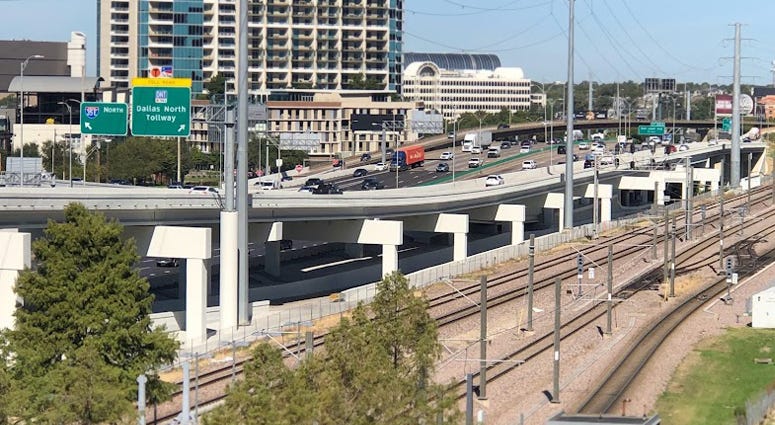
Transportation planners in North Texas are looking at how commuting options may change as more people move to the area and technology advances. The North Central Texas Council of Governments met this week to talk about the use of electric and also self-driving cars.
NCTCOG is working with a consulting firm to look at the present state of an "Automated Transportation System."
The study set a goal to bring down costs by achieving "economies of scale" where communities could buy the same materials in bulk to build guideway systems.
Another goal is to make the track cars use as simple as possible so the system could work on any type of car and be the same in each community.
"A smart and thoughtful design for these guideways will then enable us to use different kinds of vehicles based on whatever is the best available on the market and what best meets the needs of our partner cities," says NCTCOG Transportation Planner Martin Bate.
Bate says the study also aims to reduce long-term risks of any type of infrastructure becoming obsolete.
"We wanted to review emerging technology innovations and really focus on 'future-proofing' our infrastructure," Bate says. "We wanted to provide our users with demand-responsive transportation rather than having to rely on a system that comes by on a fixed schedule."
He says the study has looked at existing technology for self-driving cars, saying options currently range from small, "group rapid transit" vehicles that run a fixed route to autonomous cars with technology on board that allows them to move without staying on a track.
Bate says two pilot projects could take place in North Texas. One would focus on moving people through the Dallas International District at the site of the former Valley View Mall. The other would focus on moving cargo near the GM plant in Arlington.
He says NCTCOG is considering retrofit projects to modernize DFW Airport's Skylink and the people mover system in Las Colinas.
NCTCOG is also looking at options to charge electric cars as they drive.
"There's wireless charging available for your phone. You put it on a pad, and it uses magnetic induction to charge it," Bate says. "It's the same exact concept for vehicles but on a larger scale with a lot more juice behind it."
Bate says several companies are testing technology to embed charging capabilities in roads. He says the Michigan Department of Transportation is testing the ability as well as Tel Aviv, Israel and Sweden.
"It's still in its infancy. There's a lot of potential there, and we're going to keep a very close eye on it," he says.
Bate says NCTCOG is now assessing guidelines for charging and tracks for guideways. He says those assessments include the risk of hazards.
"If you've been watching the news, you saw that over the weekend. There was a problem with a bridge in Philadelphia on I-95. That's exactly the sort of thing we want to avoid with something like this," he says.
In Philadelphia, the driver of a fuel tanker lost control under an overpass. The fire caused by the crash caused the overpass to collapse.
Bate says they would work with authorities to ensure any material would be properly rated to withstand those hazards.
LISTEN on the Audacy App
Tell your Smart Speaker to “PLAY 1080 KRLD”
Sign Up and Follow NewsRadio 1080 KRLD

